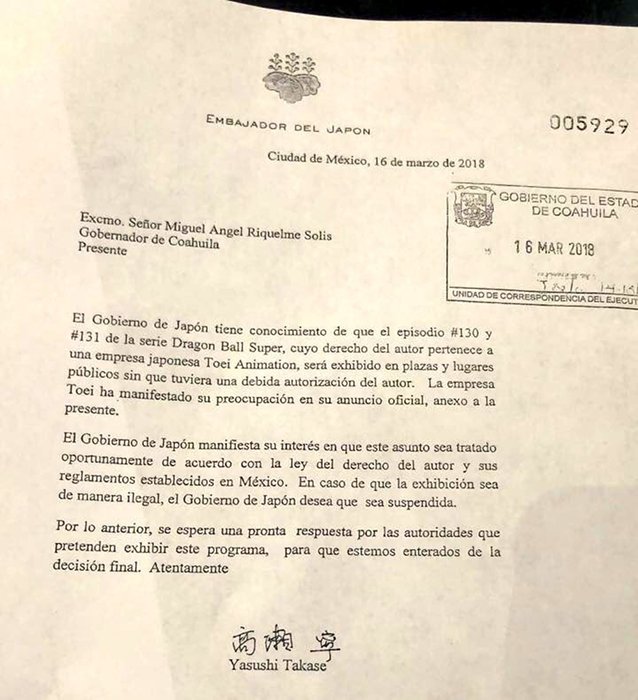 Earlier this month, fans of Dragon Ball Super in Mexico started a movement on social media which suggested that everyone should be able to watch episode 130 (titled “The Greatest Showdown of All Time! The Ultimate Survival Battle!!”) together in public.
Earlier this month, fans of Dragon Ball Super in Mexico started a movement on social media which suggested that everyone should be able to watch episode 130 (titled “The Greatest Showdown of All Time! The Ultimate Survival Battle!!”) together in public.
Surprisingly, this movement started receiving support from various local governments, many of which agreed to erect large screens in public places, from town and city squares to football stadiums.
Official government Twitter accounts lit up with announcements from the authorities, with posters like the one below issued for many of the events.
AYUNTAMIENTO CAPITALINO TRANSMITIRÁ FINAL DE DRAGÓN BALL EN PLAZA DEL CARMEN – El próximo sábado 17 de marzo, el evento dirigido a los fans de las series animadas japonesas y de los cómics… https://t.co/NhMn42toqj pic.twitter.com/meJiojPk65
— Ayuntamiento de SLP (@AytoSLP) March 10, 2018
While this all sounded wonderful in practice, there was a huge problem. According to Toei Animation, the Japanese company behind the hit anime show, no one had the licensing rights to show Dragon Ball Super in public.
The company issued a statement condemning the plans, branding the proposed performances as “illegal screenings that incite piracy” while urging people to support the creators by only watching on officially licensed platforms.
As Saturday drew near, some regions announced that without permission from Toei, their screenings would not go ahead. Others, however, offered no cooperation whatsoever, effectively informing Toei that it was powerless to do anything to stop what would amount to government-approved mass piracy.
Whether Toei had anything to do with it or not isn’t clear, but on Friday the ambassador of Japan took the highly unusual step of writing to various local governments with a demand for them to cancel the events. El Espanol obtained a copy of the letter, as shown below.

“The Government of Japan is aware that episode 130 and 131 of the Dragon Ball Super series, whose copyright belongs to Japanese company Toei Animation, will be shown in public places and places without the author’s due authorization,” the letter reads.
“In the event the exhibition is illegal, the Government of Japan wishes that it be suspended.”
It seems that as a result of the letter, some of the screenings were canceled, causing much disappointment for the fans of the series. However, in some areas of Mexico the events went ahead anyway, with tens of thousands of massively enthusiastic people in attendance.
But it didn’t stop there. The DBS fever also spread to Chile, Peru, El Salvador and Ecuador, with outdoor events attracting huge cheering crowds.
Whether there will be any diplomatic fallout from these shows of defiance isn’t yet clear but if anyone needed a visualization of what torrent sharing might look like if it took place in the physical realm, there are no better examples than these videos. In Ecuador, where more than ten thousand people gathered in just one location, fun was had by all.
BREAKING NEWS: over 10,000 #DragonBallSuper fans gather in Machala, Ecuador to see #DragonBallSuper130 (episode 130) public live-stream hosted by local government! Im so proud of mi gente across Latin America for showing @ToeiAnimation @FUNimation @Crunchyroll the power of fandom pic.twitter.com/XgtktAVVeG
— ?Oppai Senpai? (@MrOppaiSenpai) March 18, 2018
Why Toei didn’t make the most of this opportunity is anyone’s guess but it looks like the company could have made a killing selling official t-shirts alone. Nevermind, maybe next time.






